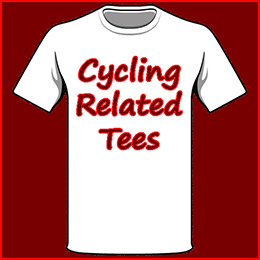Statistics
 Thu, September 4, 2014
Thu, September 4, 2014 37.8 % of all statistics are made up on the spot by the 26.9% of statisticians who are in the ball park when they should be back at the office gathering facts to back up their statistics.
I can vouch for the validity of those figures because I just made them up. Whether or not you find that funny will depend on your falling into the 49.3% of people who are skeptical over statistics.
The thing that makes something funny is when a statement contains a modicum of truth, and the point here is that some of us are skeptical of certain statistics. Whether we buy into them depends on our opinions to begin with.
Here is one I see all the time:
“Wearing a bike helmet is estimated to reduce head injury risk by 85 percent.”
I’m not sure where this one started, but it has been around for twenty-five years or more and I’m assuming that originally it had some other statistics and solid data to back up that figure.
It has been repeated over and over, and over again so many times, that it is now stated as fact without reference to the original study. When you analyze the 85% all it does is reinforce a person’s view that bike helmets are a good idea, only if that person held that view to begin with.
Without the original study and the data to back it up, 85% is as meaningless a number as the ones I made up at the start of this piece. Like many statistics, the number is big enough that it sounds good, but not too big. This makes it believable if you don't give it too much thought. I think this is what has given this particular statistic its longevity.
I don’t even know any more if wearing a helmet is supposed to reduce injury by 85% or does it reduce death by 85%? People have accidents with and without helmets, some are injured and some die, but can anyone prove to me that it is even close to 85% survivor and 15% casualty rate.
Debates about helmet use can become as passionate as any religious or political debates. One argument is that helmets make cycling appear more dangerous than it really is. Less than two cyclists are killed each day on US streets and highways. A small number compared to the 85 people who die each day in automobiles. (These are statistics that a simple Google search will confirm.)
Of course far more people drive cars than ride bikes, but even so in a country with a population well over 300 million, less than two cycling deaths a day is not what I would label a dangerous activity. Unfortunately, the general population does not see it this way.
Here is an article by an injury lawyer stating that jurors in civil cases have a bias against cyclists. They view cycling on the public highways as a highly dangerous practice, and when people are perceived to engage in dangerous activities, juries tend to place some of the blame on the participant. This has a direct effect on the amount of compensation they award.
By voluntarily wearing a helmet you at least appear to a jury or an insurance adjuster to be someone who takes responsibility for their safety. They cannot award you less with the argument that you didn’t wear a helmet; therefore you contributed to your own injuries.
Unfortunately the 85% helmet statistic gives legislators fuel to press for mandatory helmet use for cyclists. While many more people die each year from a simple trip or slip and fall than from cycling related accidents.
That’s because almost all of us walk on two feet, but only a select few ride a bicycle. Maybe upon waking each morning we should place a helmet on our head before we even put slippers on our feet; not removing it until we return to bed that evening. Viewed in this light does it not make the whole issue somewhat ludicrous?
Making helmets mandatory only re-enforces the general public’s view that cycling is dangerous. I still maintain that wearing a helmet should be a personal choice; making them mandatory stops some from taking up cycling in the first place.
Most start riding a bike without a helmet, a few will become serious and eventually buy a better bike and all the equipment that goes with it, which will probably include a helmet.
To sum up I wear a helmet because it offers some protection; I don’t believe it is even close to 85%, but wearing one can’t hurt. I may hit a pot hole and fall on my head, in which case my helmet may save me from serious injury. But a crash involving a motor vehicle? The best way to avoid injury there is to ride defensively and circumvent the collision altogether.
To Share click "Share Article" below
 Dave Moulton | Comments Off |
Dave Moulton | Comments Off | 


















Reader Comments (17)
... and don't get me started on bicycle mirrors (that was a link...), and comparing their protection against helmets. (You're right on the money about the religious aspect to the helmet argument, by the way; there appears to be just as much science and high emotion in one set of arguments as the other.)
Well, let's assume it's true that helmets do indeed "reduce head injury risk by 85%". What does that mean in the real world? Well that depends on what the risk of head injury is in the first place.
If for every km you ride your chance of sustaining a head injury is (and I'm totaly making this up) 0.00001%, then an 85% reduction would take that down to 0.0000015%.
The thing about measuring modest percentage changes in things that are rare is that they stay rare.
As you point out though perceptions and statistical reality often don't align.
Statistics can best be summed up by the famous line in Blazing Saddles: "Man drink like that and he don't eat, he gonna die," said Sheriff Bart.
"When?" smiled the Waco Kid.
Well, I've been ambulanced off the course with a concussion while wearing a helmet. The helmet was destroyed. I'm here. All good. The doctors all say the helmet saved my life. This has happened twice, once on a motorcycle, once on a bike. I'm not a fan of helmets.
So if I am going to be at speed, above 15mph, a helmet of course. If I'm going to cruise around, no lid.
The thing here is that helmets used to remind drivers to be safe and they gave me about six inches more room. Now drivers think I all ready am safe and they drive a little closer when I wear a helmet.
For me, the route, speed and traffic answer the question as to helmet. Personally I think their best use is a place to attach a blinky red light.
During the past 20 years or so I've had 3 silly spills caused by slipped gears, autumn leaves hiding a kerb, twigs on the road. Supposedly harmless, minor scratches and bruises, no broken bones, no damage to bike. BUT each time my helmet touched the hard ground. So what if I hadn't put it on.........................
I choose to wear a helmet at all times when on a bike. What baffles me is people who wear one with the chin-strap undone. Do they expect it to remain on their head until they hit the ground in a crash? Additionally, I have a friend who occasionally removes his helmet when riding up steep hills in hot weather. I have asked him whether he thinks it less likely he will be hit by a car when riding up steep hills in hot weather!
..........and coming back to statistics, apparently cyclists are seldom actually killed by vehicles but die when their heads hit something hard. And that can happen when for whatever reason one falls over. Don't ask me where I read or heard this !
Regarding Anthony C's comment: would your head have touched the ground if you had not been wearing a helmet? In 45 years of skiing and numerous falls, I never hit my head. Bowing to pressure, I started wearing a helmet. Three days later I fell and hit my head. I realized that I hit my head because the helmet is so much bigger than than my head and extends beyond the protection of my shoulders.
This is not a statistic but anedotal. Afterwards I was riding the lift with a local emergency room nurse and asked if helmets reduced injuries. She said they had fewer head injuries and more neck injuries.
Now take away from those cycling statistics the numbers that don't apply to us, the informed, learned riders, and the fatalities are very few (reduced to things beyond our control).
Like:
Homeless people riding bikes
Those riding against traffic
Riding without lights at night
Riding intoxicated (drugs or alcohol)
Weekend warriors (lack of skills)
Those that hate riding bikes
Riding with ill-fitted bikes or helmets/clothing
...and finally, those that head out on unknown trails ill-prepared and end up dead from exposure.
Like driving a car, or shooting a gun, seems like cycling is extremely safe, for those of us that bother to do it well.
Those that don't become a statistic that we don't need bother knowing about.
So how come we are included?
Steve
I think you're right Dave. That 85% figure is good because it's not too good. And it stuck around and did it's job, which was to sell helmets.
I believe that figure was born in the mind of a Bell Sports marketer. After Bell worked with the Snell Foundation to establish helmet standards (a standard that favoured Bells designs) Bell funded the infamous study that came up with the 85% figure by using authors that had already been established helmet promoters and manipulating the data comparing unlike groups of child participants claiming they were representative of the public as a whole.
I believe the 85% reduction of head injury figure came from the up to 4 years old group. 5 to 9 years olds had a 46% reduction, 10 to 14 years old had a 23% reduction. The study didn't claim helmets reduced head injury by 85%, it claimed helmets reduced injury by - up to - 85%, as in one sub set of participants had 85% less injury.
But all of this is invalid anyway because the study was done so poorly it was challenged under the federal data quality control act and after examination, the government will no longer support it.
It is no longer right to make such a claim but the number feels good to those who want to believe in the effectiveness of a helmet.
A similar manipulation of the numbers is used when claiming helmets save lives.
Based on the 85% figure, supporters of helmets often say deaths to cyclists will be reduced significantly for helmet wearers because 75% of the listed cause of death to cyclists are the result of head injuries. This is true, but what is often not said is that even if the cause of death is listed by head injury, there are most often other injuries that lead to death as well. Death to cyclists by head injury alone is a far smaller figure, often under 20% and most of those come from impacts far larger than helmets are designed to handle and most often on areas of the head that a helmet does not cover.
It's not rocket science. If you land on the top of your head while moving very slowly or standing, a helmet can help deflect some of the energy your head would suffer. If you are hit in a more realistic scenario the benefit of wearing a helmet is unclear, unless you're believer of course. Then the helmet must have saved your life. :)
In reply to SamS . In one of the incidents the helmet was actually damaged, in the other 2 cases scratched. Years before these 3 spills I lay in the road after being knocked off by a car and my first thought was, tomorrow I'll buy a helmet. Tomorrow was 6 weeks later after my shoulder injury ( ' statistically ' the most frequent cyclist injury ) had healed. We should all do what we feel good with. To my surprise a helmet has never bothered me. In comparison shoes can be a source of real discomfort.
I often say that you can make statistics say whatever you want them to. That being said, I seem to remember seeing somewhere that you are more likely to be shot at random than you are to be injured while riding a bicycle. If that is true, should we all be wearing bullet proof vests? Statistics can provide useful information; they can also be twisted around and manipulated. Gather your own information and make your own choices based on analysis of that information as well as your personal values. Don't harass others for making choices which don't affect you.
John
Lots of good thinking going on in the replies! Everyone must be wearing helmets! I appreciate Brad's revelation of the study. It reminded me of another statistic that I don't know is real and is rarely stated. Most motorcycle accidents occur to those who have been riding less than 1 year. 80% was the number that comes to mind.
Like Fair Weather Cyclist, If I am riding with my wife, which is usually a very leisurely ride, I typically don't wear a helmet. I grew up not wearing one and bought my first one as part of the effort to race, the hair net kind. Wonder where that is?
I believe I suffered a concussion as a result of an accident in 2009. The impact to the ground was severe enough to cause permanent damage to my eye. Other than that there was only a little road rash on my face. The rest of my body suffered more, $61K in medical charges.
Did the helmet save my life? Don't know. It wasn't used until after I hit the front fender, landed on the roof/windshield (which broke under my hip) and then flew through the air landing on the pavement.
John C,
" Don't harass others for making choices which don't affect you." Simple and to the point, I like it.
Thank you all for you interesting an thoughtful comments.
Dave
http://www.theglobeandmail.com/life/health-and-fitness/health/the-curious-case-of-the-cyclists-unshaved-legs/article20370814/ you can update your article Why Do Cyclists Shave Their Legs with this information: to save energy.
I recently rode at Herne Hill Velodrome, the last Olympic venue from the 1948 Olympics still in use today, where the wearing of a helmet is compulsory. An accident happened and one cyclist went down rather hard on the tarmac. They were groggy for a few minutes but got up after being seen to by on-hand track staff, whereupon they removed their helmet which had cracked upon impact. In a single moment the case for wearing a helmet was demonstrated and quite why politicians haven't/can't/won't introduce a law making them mandatory is something I struggle to comprehend.
Ah yes, the helmet debate. Mods on Bicycle Network Australia lose sleep over how to monitor and steer the debate, I suspect. Personally, I instinctively, (if that's the right term.. it could read superstitiously), started wearing one in the late 60s. Back then it was what was available, namely, an Italian plastic number that would not have done much for me. In the 70s I bought a Mountain Safety Research 'yellow 'pudding bowl', with ventilation holes front and back It may have actually protected me a little. Then came the famous Bell.
Am an agnostic on the debate. I just know that when I came off a couple of years back, it was unexpected (isn't it always), and my head hit the ground sideways. The helmet took the bulk of the impact. I wouldn't care for my temple to have been the point of contact instead.